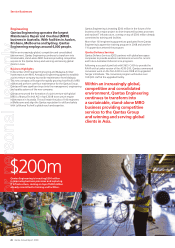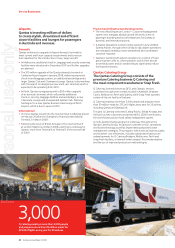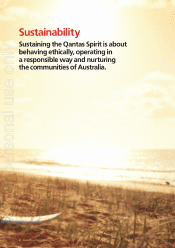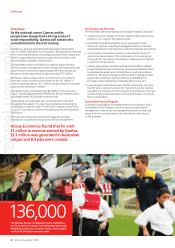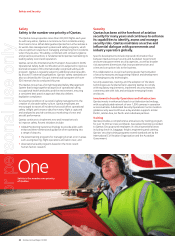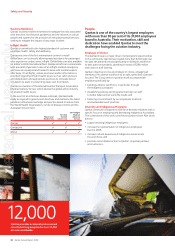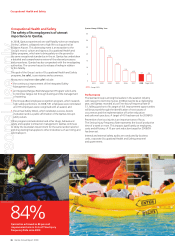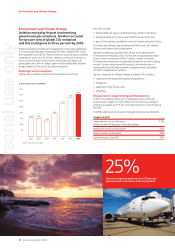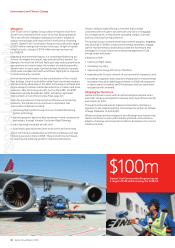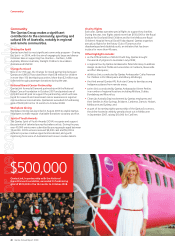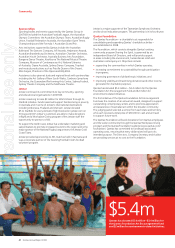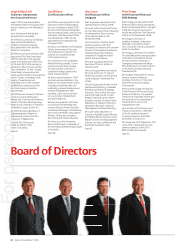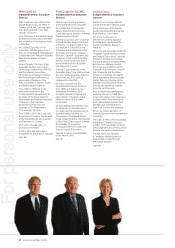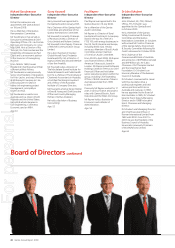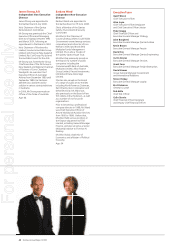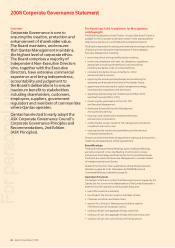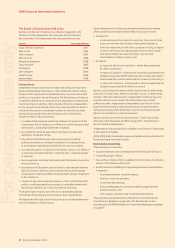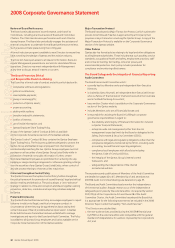Qantas 2008 Annual Report Download - page 40
Download and view the complete annual report
Please find page 40 of the 2008 Qantas annual report below. You can navigate through the pages in the report by either clicking on the pages listed below, or by using the keyword search tool below to find specific information within the annual report.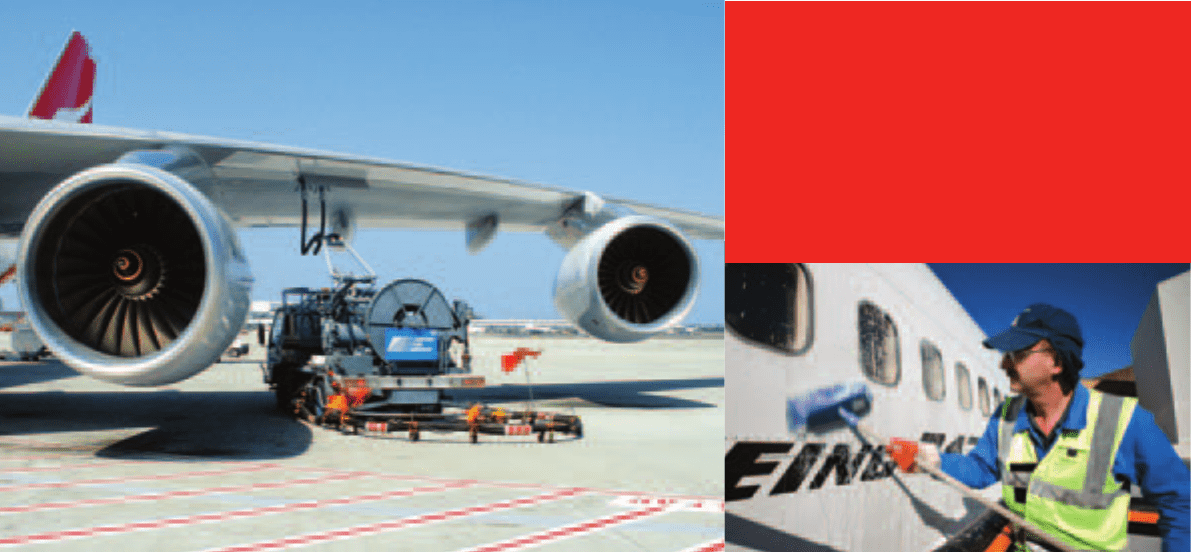
38 Qantas Annual Report 2008
$100m $100m
Qantas’ Fuel Conservation Program has set
a target of $100 million savings for 2008/09.
Mitigation
Over 95 per cent of Qantas Group carbon emissions result from
aircraft fuel consumed in the course of normal flying operations.
The most effective mitigation strategy is to invest in advanced
aviation technologies and improve the fuel efficiency of existing
aircraft. Qantas’ Fuel Conservation Program has achieved its target
of $100 million savings over the last three years. In light of rapidly
rising fuel costs, a target of $100 million savings has been set
for 2008/09.
Managing environmental impacts is a complicated balancing act.
Actions to mitigate one impact may adversely affect another. For
example, the most fuel efficient flight path may reduce greenhouse
gas emissions but may increase the number of people exposed to
aircraft noise. In some cases, Qantas has been required to operate
a fully noise compliant but less fuel efficient flight path in response
to local community concerns.
Environmental performance is a key consideration of the Group’s
fleet strategy. Under a multi-billion dollar fleet investment program,
Qantas is taking advantage of the latest technology in airframe and
engine designs to deliver substantial reductions in carbon and noise
emissions. New technology aircraft, such as the A380, the B787
Dreamliner and the Bombardier Q400, will deliver significant
improvements in fuel efficiency (see Fleet, page 22).
Given the importance of improving fuel efficiency and reducing
emissions, the Qantas Group continues to implement fuel
conservation initiatives including:
• optimising flight paths through the use of Global Positioning
System technology;
• optimising speed, based on daily variations in wind, temperature
and weight, through Variable Cost Index Flight Planning;
• reducing weight onboard aircraft; and
• switching to ground power when an aircraft is at the terminal.
Jetstar will introduce additional fuel efficiency initiatives next year
following successful trials in 2008. These include new techniques
for cleaning and polishing aircraft to improve performance.
Jetstar’s JetSaver Light offering, a new fare that provides
customers with the option to travel with only carry-on baggage
for a cheaper price, is reducing the operating weight of aircraft
and thus reducing fuel requirements.
The Qantas Group’s environmental improvement program, begreen,
was launched in 2008 to create environmental awareness, engage
staff in environmental activities and provide the framework and
strategies for Group-wide environmental management of fuel,
energy, water and waste.
Initiatives include:
• reducing inflight waste;
• increasing recycling;
• improving the energy efficiency of facilities;
• expanding the Group’s network of environmental champions; and
• providing recognition and rewards to employees for environmental
innovation through an eXcel award scheme. In 2008, 46 employees
or teams were nominated and 24 employees and one team were
recognised with an award.
Adapting for the Future
Qantas continues to work with aircraft and engine manufacturers
and other industry participants to develop more fuel efficient aircraft
and cleaner jet fuels.
Through the International Air Transport Association, Qantas is a
signatory to the Aviation Industry Commitment to Action on Climate
Change Statement of April 2008.
While pursuing new technologies in aircraft design and cleaner fuels,
Qantas continues to work with business and local communities to
adapt to changing environmental conditions. Examples of our recent
initiatives include:
Environment and Climate Change
For personal use only


